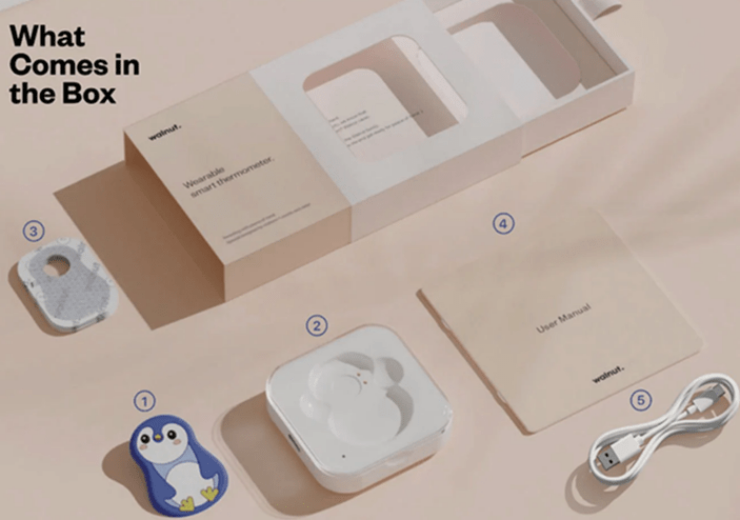According to the FDA, the possible overheating and leakage of corrosive chemicals from the device can lead to skin irritation, burns, other serious injuries, or even death

BearCare recalls wearable child thermometer. (Credit: U.S. Food and Drug Administration)
The US Food and Drug Administration (FDA) has classified BearCare’s recall of its smart Walnut Wearable smart thermometer devices as a Class 1 recall, the most serious type of recall and use of these devices may lead to serious injury or death.
The rechargeable Walnut Wearable Smart Thermometer is said to be a reusable thermometer that can be paired with an application on a smartphone.
Designed for home use, the device can continuously monitor the body temperature of infants and children aged 0 to six years. It can help to monitor the readings from another room and send alerts if the child’s temperature spikes or drops.
US-based BearCare has issued a voluntary recall of its smart thermometers following reports of skin burns and irritation.
According to the FDA, the possible overheating and leakage of corrosive chemicals from the device can lead to skin irritation, burns, other serious injuries, or even death. BearCare has reported five complaints related to this issue.
The US health regulator said that it can affect children, infants and neonates using the thermometer as well as the parents and caregivers who are operating the device.
In May, the company issued an Urgent Medical Device Recall letter to customers to recommend actions like immediately stopping using Walnut Thermometers that operate on a rechargeable battery.
BearCare recalled 979 WT20 models of the thermometer that were sold between 1 December 2022, and 1 April 2023, through Amazon and Walmart as well as BearCare’s own website.
For retailers, the firm asked them to remove rechargeable Walnut Thermometers from every online marketplace and return the product to BearCare.
In a company statement on its website, BearCare said: “Given the vulnerable population of neonates and infants, other areas of the body should be checked, including the mouth and eyes due to possible transfer of corrosive fluids that may cause chemical burns or toxicity if swallowed.”
